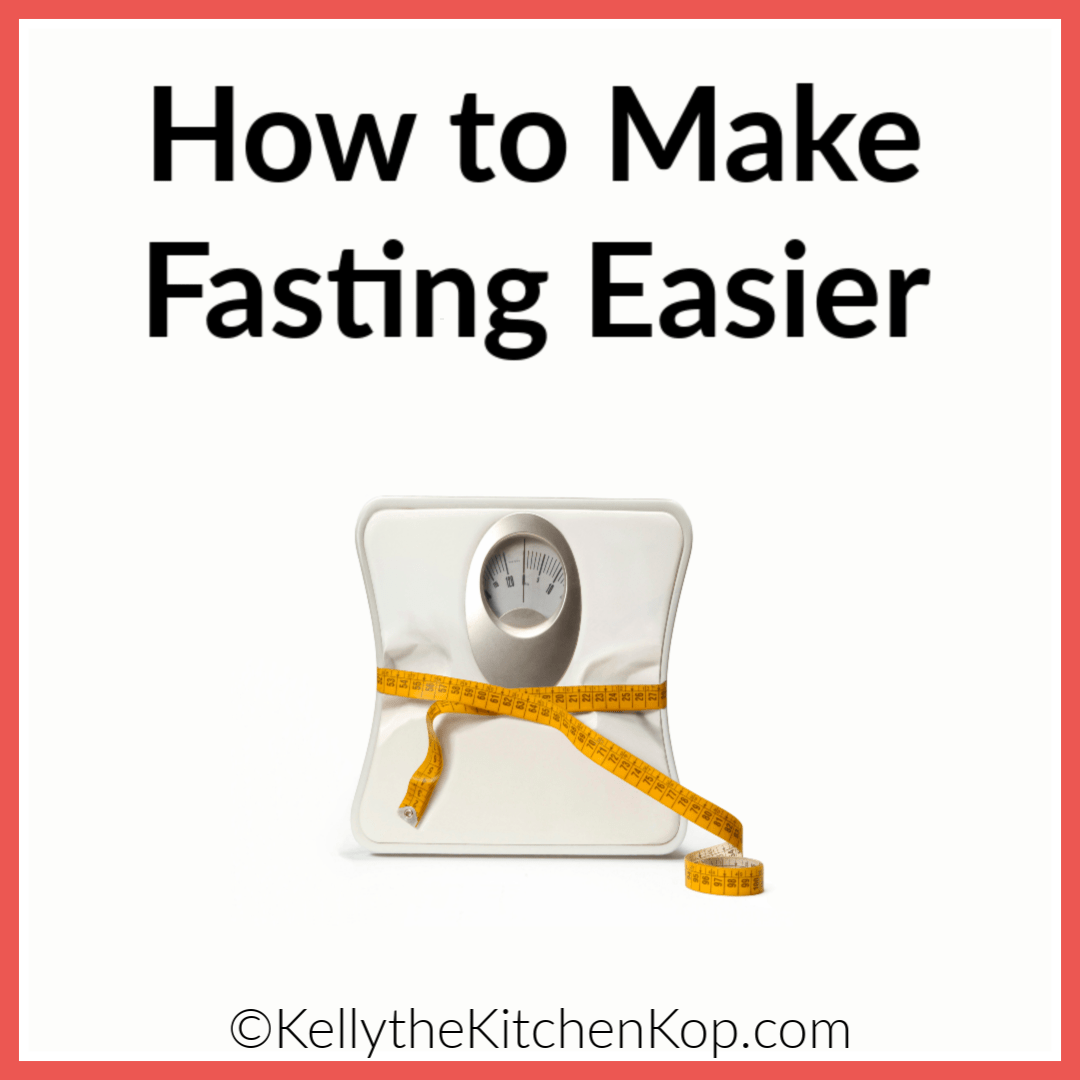
Do you want to start fasting more but need tips on how to make fasting easier?
I've learned a lot in the past few months about fasting and want to share the condensed version with you here…
First, why would you WANT to fast?!
Start by watching this powerful trailer:
Fasting is so good for you, and it goes way WAY beyond weight loss and blood sugar regulation, although those are the main physical reasons I do it myself (more on the spiritual reasons in the videos below)–I've lost 20# so far, and inches too, plus my fasting blood sugar numbers have been great. It helps to melt the visceral fat that gathers around our middle area, and I can wear tops again that I came so close to putting in the donation pile!
But it also promotes cell regeneration, it can prevent chronic disease, increase energy, rebalance hormones, can improve cholesterol numbers, decrease brain fog, and can also decrease inflammation and pain. The video at the very bottom of this page tells how good fasting is for the brain and how it can help prevent or improve Parkinsons, Epilepsy and Alzheimers!!!
In addition, fasting offers many important unique advantages that are not available in typical diets:
Where diets can complicate life, intermittent fasting may simplify it. Where diets can be expensive, intermittent fasting can be free. Where diets can take time, fasting saves time. Where diets may be limited in their availability, fasting is available anywhere. And as discussed earlier, fasting is a potentially powerful method for lowering insulin and decreasing body weight. (Source)
With fasting there's no counting calories, no eating this not that, no buying expensive diet plans or special food, which is usually fake crap anyway. If you also need to lose weight, then try combining fasting with keto/low-carb eating–that's what worked for me because it kept me from pigging out on the foods that tempt me to overeat after my fast. But to get the health effects of fasting you don't have to add that low-carb step in. The main goal is lowering insulin.
More that fasting can do:
- Fasting can also possibly help prevent or reverse cancer or at least help the chemotherapy process (check out the documentary “The Science of Fasting” for more on how fasting for at least 48 hours before chemotherapy treatments can help reduce side effects, suppress tumor progression, and increase chances of survival.)
- It can tighten up that dreaded loose skin during the weight loss process.
- It also will make those hours at the gym count for more–your body will produce higher levels of adrenaline, testosterone, and human growth hormone. Which means you’ll gain more muscle from your workouts.
- Or even help struggling want-to-be moms finally get pregnant! (Read that article, but do be careful with this one–Moms who are too thin often struggle getting pregnant, you need plenty of healthy fats and nutrients to give your body what it needs to be fertile!)
- I've looked everywhere and can't find where I got the following quote, but it's an important one! “When you eat, your body focuses on breaking down the food you’ve consumed, which wildly decreases your usable energy. This is why you feel the need to nap after a huge meal. Plus, blood flow is redirected from your body (including your brain) and sent to aid in digestion… which results in “fog brain” and slowed cognition! When in a fasted state, your body will use that available energy to cleanse and repair itself! It’ll get busy flushing toxins (normal metabolic byproducts), then recycle old, tired cells (a process called “autophagy”) and begin rebuilding new ones thanks to stimulated growth hormone. What happens when your body doesn’t recycle cells properly is an accumulation of old cells… These nasty things can cause early aging and even cancer. It’s fascinating to realize even neurological diseases, such as Alzheimer’s, can be prevented by fasting. Getting yourself into a fasted state triggers autophagy and thus the amyloid beta proteins in the brain are recycled, no longer left to accumulate. Thus, preventing the onset of Alzheimer's.” This is good news for us because you may remember that Alzheimers runs in Kent's family, so I'm very thankful that he is serious about eating one meal a day during the week, and sometimes does 48 hour (or longer) fasts as well.
If you're considering weight loss surgery, why not try this first?
Either way you'll eventually need to limit what you eat, why not just do it naturally on your own instead of being forced to because your stomach is too small to hold much food anymore? It's cheaper and obviously much less drastic and invasive!
Who should NOT fast?
You shouldn't fast if you're under 18, if you're pregnant or nursing, or if you're malnourished (which is a very rare). Dr. Fung also says to consult a doctor before fasting if you have gout, diabetes 1 or 2, if you take medications, or if you have gastroesophageal disease. (It's important to heed this advice, because for example if you're diabetic and don't eat, but you're on insulin, you could have a dangerous blood sugar LOW.)
If you mention fasting to most people, you'll hear things like this:
“You’re not going to eat all day? I think I'd die!”
“That doesn't sound healthy to me, it's just a fad.”
“I heard that you'll lose muscle mass that way.”
You may know that none of that stuff is true. (Read Dr. Fung's article on busting fasting myths.) But even so, you probably have other objections:
“If I don’t eat, I get a serious attitude problem.”
“The hunger was unbearable. I know it’s temporary and that my body is healing itself, but I just can’t do it.”
I’m not going to lie, those criticisms are real, and all the benefits in the world don't matter if you can't actually do it. So here are the tips for how to make fasting easier and these tools are why it’s no big deal for me these days, especially the 1-2 day fasts…
Very important:
Please don't fast all day then pig out on junk, although I know it's tempting! Even more you'll need to focus on nutrient-dense foods when you ARE in your eating window, for obvious reasons: you'll be putting less food in, so you need to get the most nutrients possible in that time frame.
My book can help you know which foods are best!
Here's how make fasting easier:
The following are a combo of Dr. Berg's tips mixed with my comments. Check out more in his video — he listed a few more tips that I don't do myself…
- You may need to work up slowly if you've never done this before–just keep slowly increasing the number of hours without food. Start with no snacks after dinner. Then try to eat breakfast a little later, then later.
- We'll get the most difficult one out here: You'll need to deny yourself and learn self-discipline–especially while your body and hormones are adjusting, and you may be feeling quite hungry. However, it’s crazy that some people haven't missed a meal in years or ever. This really won't kill you! And it feels good to be the master of our bodies, and not let our desires master us. There's more on this below and in my weight loss post.
- Drinking coffee is okay when fasting, but without sugar. Add real cream if you need it because fats don't have much of an effect on your fast.
- Add MCT oil in your coffee — MCT turns into ketones quickly and allows you to go longer.
- Sometimes you might feel a headache coming on or just feel icky when fasting—toss some sea salt into your mouth for the electrolytes/trace minerals which can help you feel better and fast longer, this also can increase energy and help with “keto breath”! (But if you’re really not feeling well, listen you your body and eat. Then work up more slowly to longer fasts.)
- Make sure you're drinking healthy water–Dr. Berg says to drink 2 liters/day or so. I don't always drink that much. I drink coffee in the morning and then just sip on water all day. Having a cup like this helps because it stays cold for so long! (And as long as your water still has the minerals, NOT reverse osmosis water which has NO minerals, then you probably won't get Charley horses from eating less grains like I did.)
- Add some fresh lemon juice to your water for the detoxing effects–this is especially good if you tend to form uric acid kidney stones.
- Probiotics (to stabilize blood sugar).
- B-vitamins (helps insulin resistance and give you more energy).
- And again remember: if you don't feel well at any point, just eat and keep working up to longer fasts as you're able.
- Drink water.
- Stay busy.
- Drink coffee or tea.
- Ride out the hunger waves.
- Give yourself one month to see if intermittent fasting is a good fit for you (such as 16:8—fast 16 hours and eat only in an 8 hour window).
- Follow a low-carb diet between fasting periods. This reduces hunger and makes intermittent fasting easier. It may also increase the effect on weight loss and type 2 diabetes reversal, etc.
- Don’t binge after fasting.
- Fit fasting into your own life so this can be sustainable. Don't limit yourself socially or on special occasions just because you normally fast then. Instead, just resume your fasting schedule later.
One more note…
- Did you know that bone broth can help you get over any fasting “humps”?
Apparently it's best to not drink bone broth during your fast if possible so you can get the full effects, however if you really need it in order to extend your fast longer, then it's a great no-carb and nourishing option. Here's some already done for you bone broth (made from pastured animals, just like the kind I make myself!) — it's so nice for those times I've run out of my own or mine is all frozen solid. If I'm struggling during the day, a little of this in the afternoon is all I need to keep my fast going easily.
How fasting looks for me…
For quite a while now I've been fine with 24-hour fasts–yep, that means one meal a day, but I mostly only did that on Fridays. (Read here about when I did a 5-day fast, that was too long!) These days I fast for 24 hours at least 3 days a week, and usually 4-5. However you may lose weight and stabilize your blood sugar with only 16 hour fasts, just see what works for you. As I talk about here in my weight loss post, 10 tips for losing weight even after menopause, one important key is not to binge when you DO eat, and even better, eat mostly keto/low-carb meals when it's time to eat, especially if you are fasting for weight or blood sugar control. (BTW, if you subscribe to my newsletter, you can get a free keto cookbook, you just pay shipping.)
I only drink black coffee or water when I'm fasting. On longer fasts (more than 24 hours) I'll also throw back some sea salt now and then just to keep my electrolytes up. Sometimes I'll drink decaf tea in the afternoons or on my longer fasts I might switch between the fasting tea and bone broth only if I feel like I need it, so I can extend my fast, kick up autophagy/cell turnover, and not kill my family–bonus! 🙂
Kent eats one meal a day 5 days a week as a way to deepen his prayer life AND for health reasons since, as mentioned above, fasting could also prevent Alzhermiers, which is prevalent in his family. That's what took his Dad. 🙁
Update:
Kent and I have now added in a weekly 48 hour fast. It feels like a good “reset button” and is also a nice once-a-week cooking break too. It's good for the kids to figure dinner out on their own sometimes anyway. And as Kent always says, “We have a lot to pray about.” Parents of grown kids, you know what I'm talking about. I thought toddlers were tough, but this stage is often a much bigger challenge and keeps us on our knees!
A note about fasting and adrenal fatigue:
Here's a first-hand story from my friend Susan about doing Keto even with adrenal dysfunction. Hint: she's down 70# now! By the way, others vehemently disagree and say that those with adrenal fatigue should NOT do intermittent fasting. Read more about that here:
So that's it, pretty much everything I know about how to make fasting easier!
However there's more juicy info below… (just scroll through to the bottom to see what interests you):
- Purge, Splurge, Fast and Last — Sally Fallon on fasting for health reasons
- Here's the book I refer to often: Complete Guide to Fasting
- Reasons you may not be losing weight on a Keto Diet. And another one: Why can't I lose weight? More: Why do we get fat? We get fat because our insulin levels are too high.” More: “If we believe that excess calories caused obesity (Caloric Reduction as Primary) then the treatment is to reduce calories. This was a complete and utter failure. If we understand that obesity is caused by too much insulin, then we need to lower insulin.” “From the 1950′s to the 2000′s we believed that calories caused obesity. This led to numerous calorie restricted diets – the large majority of which were complete failures. And hey, guess what, obesity rates exploded.” “The key is NOT balancing calories–it is to balance hormones.” (Source)
- As mentioned several times above, one key to losing weight when you're practicing intermittent fasting is to NOT pig-out when you do eat again. This is from my other post with 10 tips for weight loss: The hardest tip and the one you guys will like the least: sometimes you just have to be okay with being hungry. Lots of times you will hear people talking about their weight loss and say, “I never even felt hungry!”, but especially at first before your stomach shrinks a little and you fill up quicker, you WILL feel hungry. You'll feel hungry when you're fasting too (especially if you need to feed the rest of your family and you smell the food!), but that's okay, because that's when your body goes into fat-busting mode! Here's what I do:
- Just acknowledge it, “Yep, I'm hungry, it won't kill me”.
- Say a prayer: I say, “Jesus I hunger for you more than food,” and then pray for someone who has REAL problems. (That might be you, and if so, lean on Him instead of food to satisfy you. It's not always easy, give yourself grace and keep working at it.)
- Get busy doing something else. Go for a walk, go learn something new, or even better: go help someone in need! Just do something.
- More about self-control and fasting:
By the way, I love this by Dr. Fung:
“One final thought about stress relief. It’s always a little amazing to me how far organized religion is ahead of the game. Think about the practices they preach. Prayer (similar to meditation). Belief in a higher power/ confession (stress relief). Weekly ceremonies, like Mass (sense of community and continuity–important for stress relief). Small group session (friendship and sense of belonging–stress relief). Fasting. Yes, fasting. All of these practices that are so important for good health have been established thousands of years ago.” (Source)
- Here's a neuroscientist explaining how good fasting is for the brain and how it can help prevent or improve Parkinsons, Epilepsy and Alzheimers!!! (BTW, he also says that it takes 10-12 hours to deplete the glycogen stores in your liver so you can start burning fat, or less than that if you exercise, so that's why shortening your eating window is beneficial.)

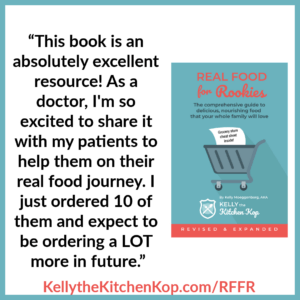
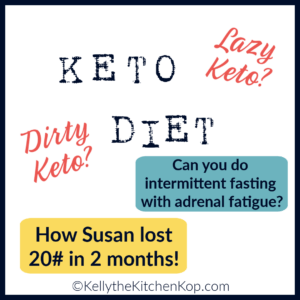



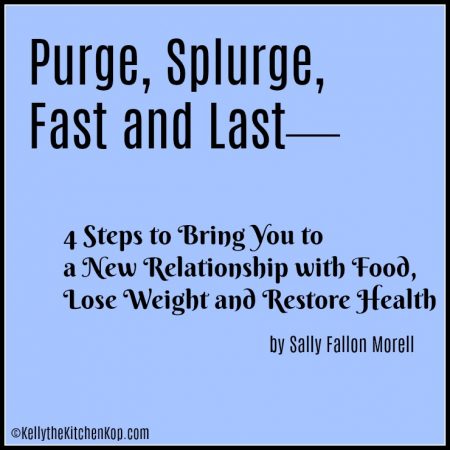
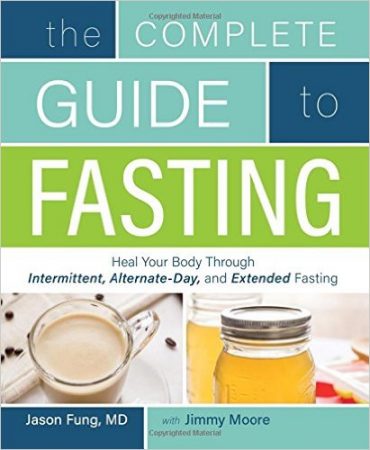

Claire says
I started with 16:8 clean fasts in January, now I’m working my way up to 17-18 hour fasts. It does take self discipline. I’m still lacking energy in the morning, but I hear after 6 weeks my body will adjust and start burning my fat instead of glucose. I’m looking forward to some positive results for my post menopausal body. I’ve been following Dr. Mindy Pelz on YouTube. Her “Fast like a Girl” and advice for post menopausal women and fasting has been very beneficial.
Kelly says
The best information on fasting is HERE! Thank you Kelly!
Kim F says
My hubby and I will be coming off a 14-day fast this week. Do you have any information about how to come off of the fast? I know we have to take it slow, and I have bone broth, beet kvass, and sauerkraut juice ready to help with reestablishing the gut flora. Any other help or suggestions are appreciated. BTW, we have both lost over 10 pounds! My kids even noticed!
Thanks for your help!
KitchenKop says
That’s great Kim! Sorry I don’t know specifics about coming off a long fast, the only thing I know is what you said, that you have to take it very slow. Good job!!
Kel